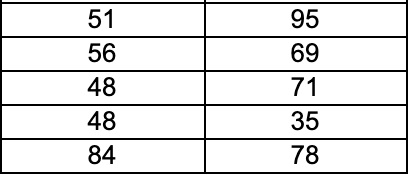

It is normal for the heart rate to vary throughout the day in response to exercise, anxiety, excitement, and fear. A faulty electrical system can lead to an abnormal heart rhythm. The muscle has an electrical system that tells it when to beat and push blood around the body. Speak to a doctor if you are concerned about a consistently irregular heartbeat. Share on Pinterest An occasional extra beat should not be a cause for concern. Taking the pulse is, therefore, a direct measure of heart rate. The pulse rate is exactly equal to the heartbeat, as the contractions of the heart cause the increases in blood pressure in the arteries that lead to a noticeable pulse. The pulse is often confused with the heart rate but refers instead to how many times per minute the arteries expand and contract in response to the pumping action of the heart. This prepares the body to use more oxygen and energy to escape or confront potential danger. When it beats, the heart pumps blood containing oxygen and nutrients around the body and brings back waste products.Ī healthy heart supplies the body with just the right amount of blood at the right rate for whatever the body is doing at that time.įor example, being frightened or surprised automatically releases adrenaline, a hormone, to make the heart rate faster. The heart is a muscular organ in the center of the chest. If you find that your heart rate is abnormal, speak to your doctor immediately for further treatment methods.The heart rate is the number of times the heart beats in the space of a minute. Consider purchasing a wearable heart monitor to measure your heart rate and keep it in check. The Heart of the MatterĪccording to researchers from Harvard Medical School, one in four deaths in the United States is due to heart disease. As always, speak to your doctor if you have any concerns.

You can combat tachycardia through medications for underlying diseases, surgery, or through the implantation of a cardioverter or a pacemaker.

Consult your doctor about the best steps to take.ĭownload Our Heart Health Guide Causes of Fast Heart Rate in Elderly You can treat bradycardia by exercising, keeping your blood pressure and cholesterol under control, limiting smoking and drinking, managing stress, and using other treatments to care for heart disease. Chemical imbalances (such as calcium, electrolytes, and potassium).You should have a thorough medical evaluation to determine the cause of your low heart rate but here is a brief look at what causes low heart rate in elderly. This includes fainting, dizziness, fatigue, shortness of breath, chest pains, and memory problems. Causes of Low Heart Rate in ElderlyĪ low heart rate, or bradycardia, can cause severe health problems. If a senior’s heart rate is too low or too high, it can be dangerous and we will go over why in the next two sections. According to the American Heart Association, the estimated target heart rate numbers for adults ages 45-70 are:

To determine the target elderly heart rate, you will want to take the maximum heart rate for seniors (220 and subtract your age) and take 50-85% of that. However, the resting heart rate for seniors can differ from their heart rate with regular exercise. A normal heart rate for seniors is between 60 and 100 beats per minute.


 0 kommentar(er)
0 kommentar(er)
